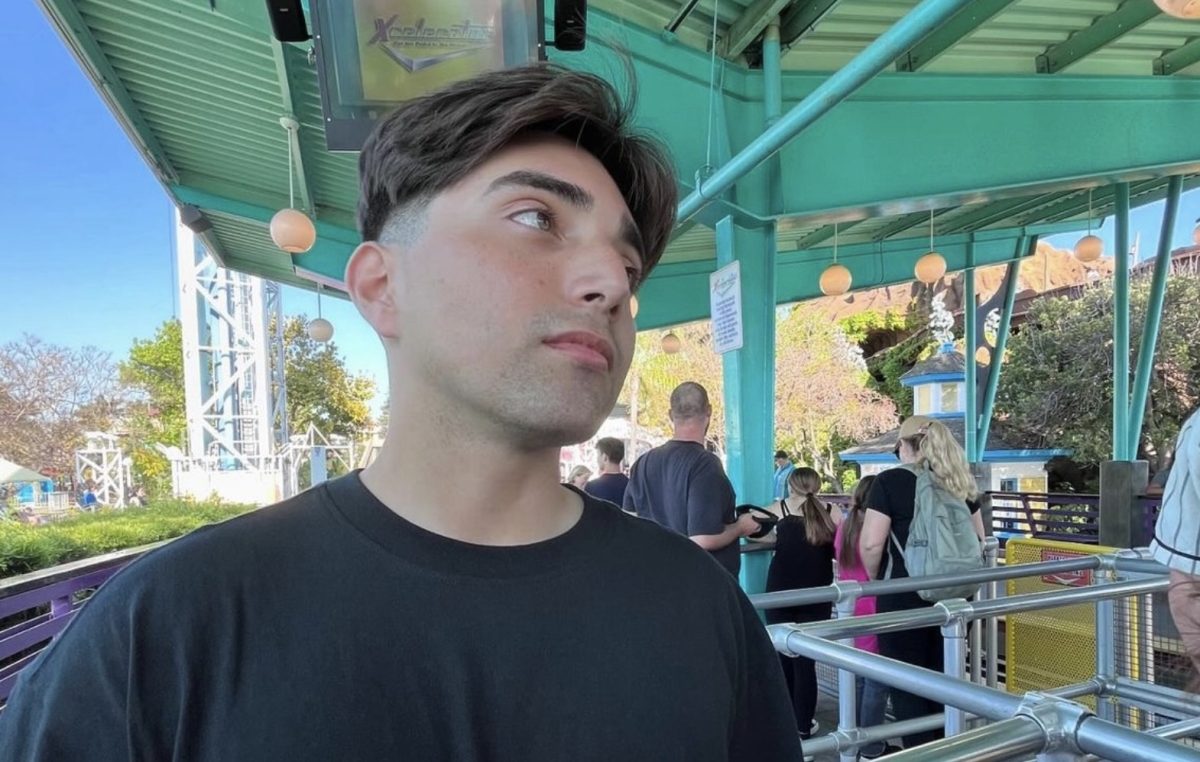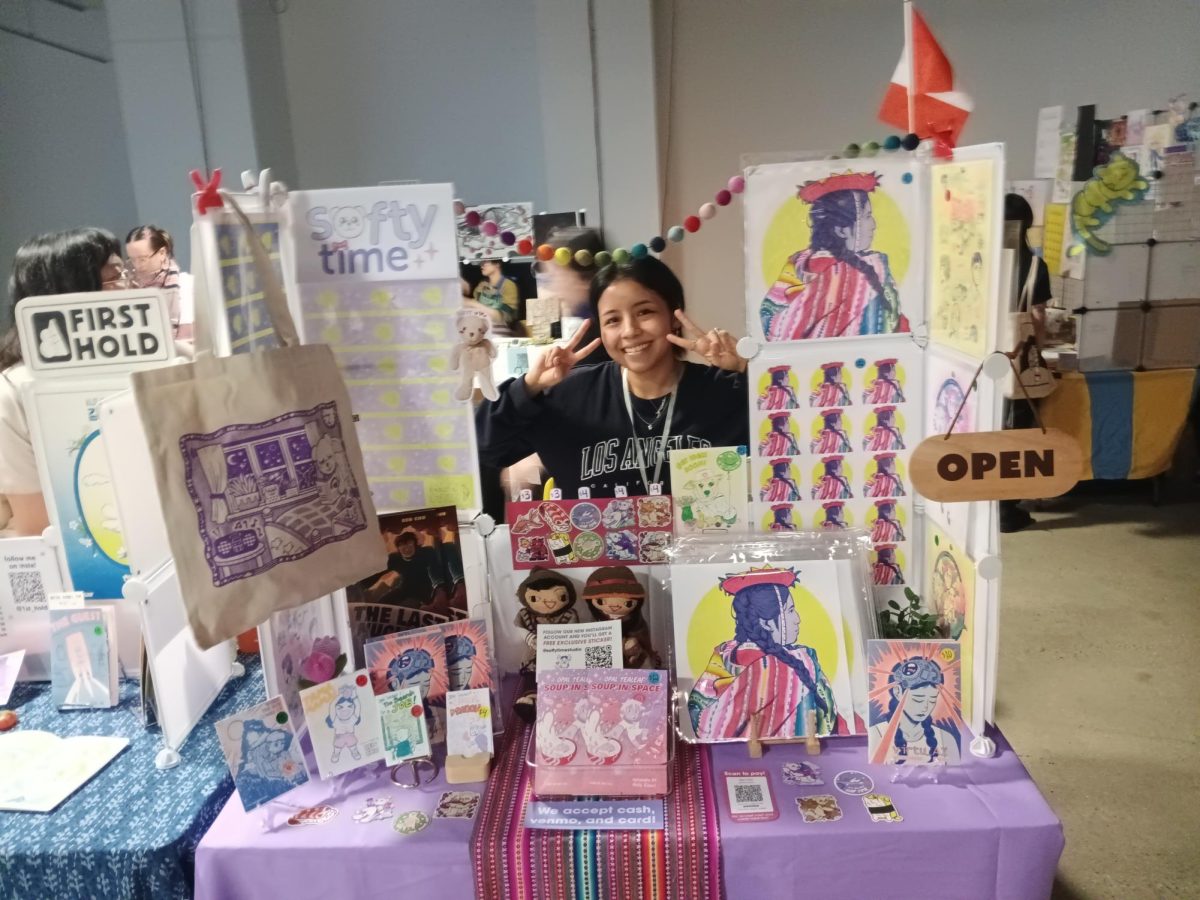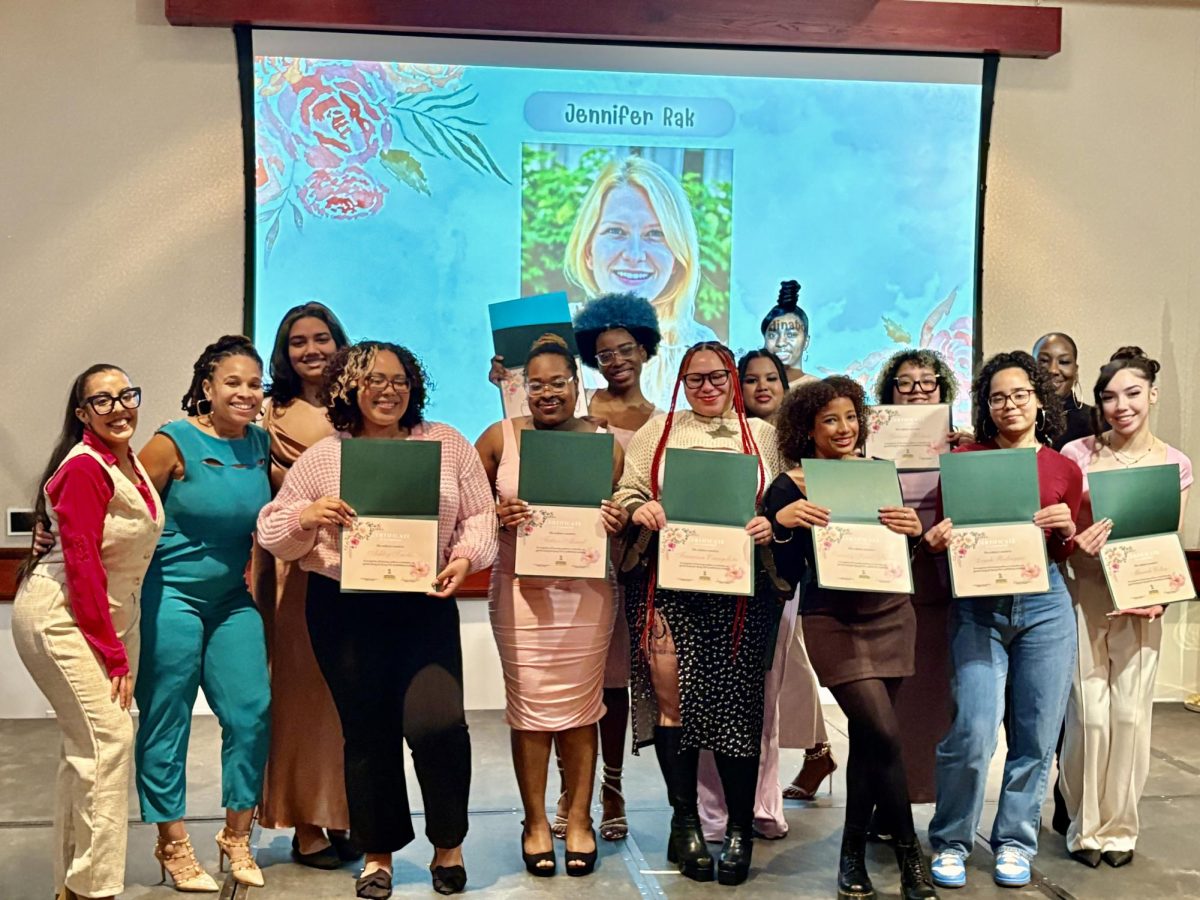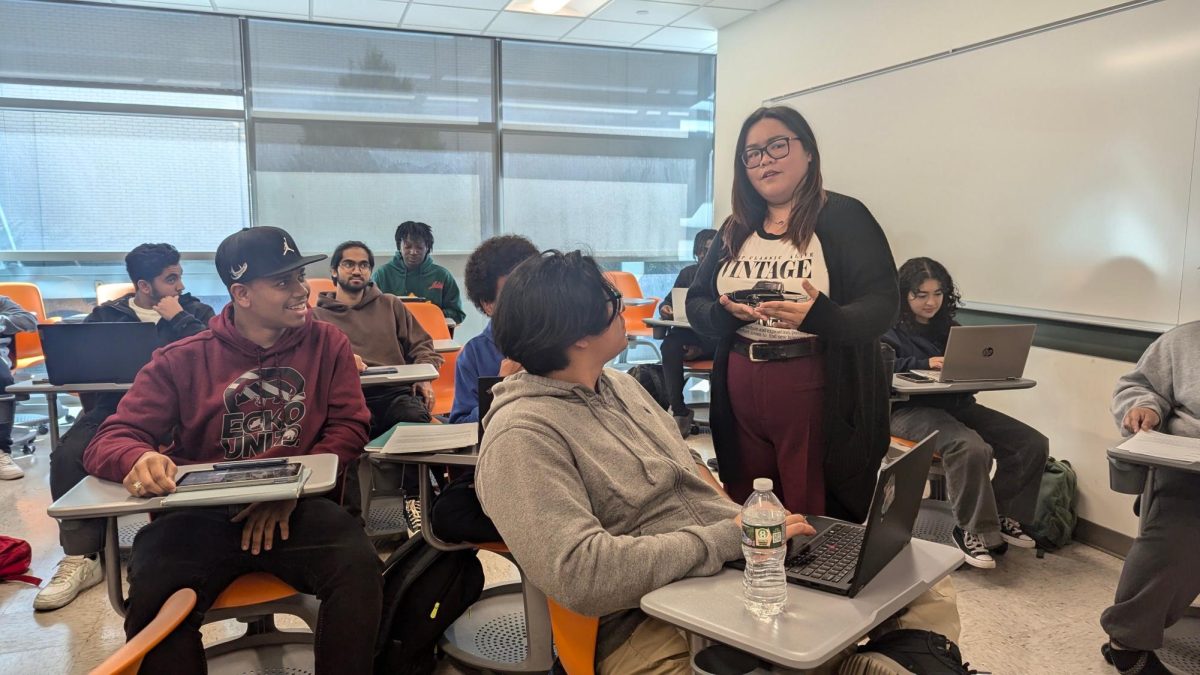By Jennifer Vazquez —
Have you ever gone through your day at New Jersey City University, looked around, and thought about your peers? How did they get here? What are they doing with their lives? Students that attended the “True Life: I’m Undocumented” event on December 6 in GSUB room 129 are sure to be doing that now. NJCU is known for its diverse student body, many of whom are undocumented.
The event started with the guest host Bea Sabino, 22, nursing major at the College of Staten Island, originally from the Philippines, engaging the audience in a general discussion on immigration. Sabino is the current chairperson of the Jersey City based chapter of Anakbayan, a national democratic youth group for Filipino men and women. She introduced the speakers, starting with Maria Gomez.
For Gomez, it took almost two years to obtain a visa after being rejected the first time. Having moved from Columbia with her family, Gomez first moved to New Jersey. It was an easier transition due to the high Hispanic communities. Things changed when she moved to Virginia where she attended a school with primarily white students.
“I was put in an ESL program with a teacher who didn’t know Spanish…I was forced to learn English,” said Gomez.
Eventually, Gomez learned of her status and what that meant for her and her family. She would hear people talk about “illegal” immigrants and would say nothing back. Every time she saw a cop car she felt afraid, never really understanding why. She never did anything wrong, she never hurt anybody or committed a crime. All she knew, from what she observed from everyone around her, was that, for some reason, she was not meant to be here.
“I felt like I was a criminal. I felt inferior, like I was doing something wrong,” said Gomez.
However, today she is no longer afraid to speak about her process to citizenship and the fear she lived with. She brought attention to many NJCU students that have not been so lucky and how much they really do personally to finance their education.
“I have friends that come here and pay out-of-state tuition,” she said.
Maria Elena Julia Reyes was born in the Philippines; at a year old her father moved to the US. When she turned seven, her family decided it was time to follow him. Reyes went through high school never really knowing of her status. So, when her parents told her she couldn’t fly to Florida for a competition for ROTC, she had no idea why. It was then that her parents told her of her status.
“Flying anywhere would be a risk for myself and the rest of my family,” said Reyes.
Graduating high school was a sad time for Reyes as she watched other people receiving acceptance letters. Without the help of financial aid, and with limited scholarship opportunities, she figured college was never an option.
“I couldn’t obtain financial aids or loans,” said Reyes.
As if things weren’t tough enough, her father soon went to jail for domestic violence and her family was nearly deported.
Now, through deferred action, Reyes is working ridiculous hours to fund her schooling. Contrary to common misconceptions, taxes are taken out of her paychecks. She pays out-of-state tuition and does not get financial aid.
The last speaker, Marisol Conde-Hernandez, was the guest speaker for the event. She is currently a Professional Development Coordinator for the New Jersey DREAM Act Coalition (NJDAC); she has openly spoken all over the country about her status and the need for immigration reform.
Unlike the other two speakers, Hernandez came to the US when she was a year old. She grew up learning both English and Spanish, never having a memory of the move from Mexico to Princeton, New Jersey. She has been working since 12 and has been paying her own rent and food since 16.
When her father was incarcerated for nine months, she took on his two jobs to support her mother and younger siblings. She eventually graduated with a Bachelor degree from Rutgers University. Going through so many hardships, she developed an eating disorder.
“It was self-diagnosed because I had no health insurance,” said Conde-Hernandez.
If you think that the point of the event was to only tell sob stories about the lives of undocumented immigrants, you are definitely mistaken. Focusing more on the facts and common misconceptions about undocumented immigrants, Hernandez glided past her back story and talked about the current political stand still immigration reform is in.
Her goal is to bring attention to the Tuition Equity Bill which, similar to the DREAM Act, has been floating around the state legislator for 10 years.
For those who may not realize how important this topic is for the state of New Jersey, Conde-Hernandez made the issue very real, stating that, “New Jersey has the 5th highest number of undocumented immigrants in the country.”
She made sure to clarify that the Tuition Equity Bill “does not give people loans,” which is a common misconception. Rather, it just levels the playing field by allowing undocumented students to pay the in-state-tuition rate, thus allowing for more of these students to attend college. As Hernandez pointed out, the bill would actually increase revenue in state schools, like NJCU.
Students felt both inspired and bothered by the issue of immigration reform and its toll on undocumented students.
“I’m always for immigration reform, but it made me feel like it’s going to take a long time for things to happen,” said Yuan Li, 21, Biology major from North Bergen.
“I think as long as they’re not hurting anyone in society, they should get the rights of everyone else,” said Michael Fuchs, 19, Business major from Bayonne.
“Immigration reform is very important for all those undocumented students….Sadly, the issue is not going to get attention because of the fiscal cliff,” said Irvin Alvarado, 20, undeclared major from West New York.
“True Life: I’m Undocumented” was co-sponsored by Anakbayan, FELA, LSU, and SGO.








